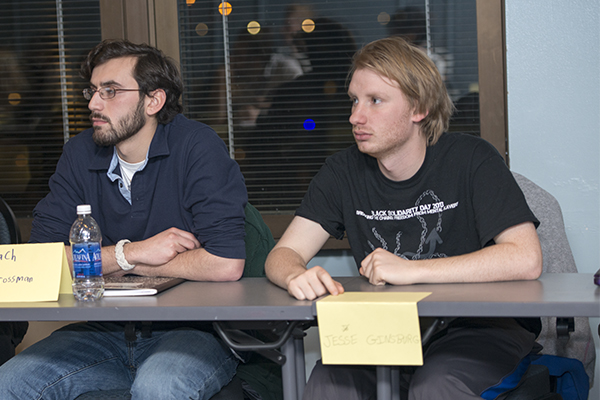

The 57th Student Senate met for the fourth time this semester on Wednesday, Feb. 26 at 8 p.m. in Student Union (SU) 418.
The first discussion topic of the night was the development that senate has made with representatives from the Health Office in providing transgendered students with healthcare that fits their lifestyle needs — including sex change surgery or treatment for gender identity disorders.
Student Association (SA) Executive Vice President Zachary Rousseaus said that there were three possible options for how these healthcare needs will be addressed. The first option was that there will be no change in the student health insurance policy, but there will still be money allotted to the students in need of additional funds to cover surgeries or hormonal treatments.
Another option discussed was to provide up to $25,000 to those struggling with gender identity and a third choice was to give these students an unlimited allowance in healthcare funding to meet their needs.
“It’s not irrational for us to be pursuing this in any way,” Rousseaus said. “I’ve been in contact with other colleges that have done this and since there are such few students that will be included in this policy, the student health insurance rate probably wouldn’t go up more than $10.”
To close this idea, Rousseaus urged the senate to press for the unlimited amount option, which they all voted in favor of unanimously.
“$25,000 isn’t much to cover the pricy procedures or surgeries that these students may need,” he said.
During the meeting’s senate reports, a senator said that advancements have been made regarding LGBTQ student body safety when they are choosing a roommate at random. She explained that Residence Life is considering asking students before they get placed at random with an LGBTQ student if they are comfortable living with someone who does not identify as heterosexual.
“This may add to the system where roommates get chosen, so that people who have two opposing answers won’t get put in the same room,” she said.
The longest discussion of the night was about a newly proposed committee involved in the Alumni Affairs Bill, which has a mission to help students network with alumni. The biggest disagreement between members on the senate was the decision to make an existing senator a chairperson of the committee. Some senators argued that this idea should be voted on that night and that improvements could be made as time progresses, but others wanted to take their time.
After reviewing the three options of who could become a chairperson (a regular student, a senator from SA or an E-board member), senators eventually came to a consensus: a student or a senate member will be able to run for the position on the committee as long as the Executive Vice President can oversee their decisions. Fifteen members voted in favor, it will go into the bill.
Mike Patterson, Director of Student Activities and Union Services, said that if this committee involved with the Alumni Affairs Bill becomes a reality, it will need to be allotted into the Student Activity Fee.
The final topic of the night were these fees. According to Patterson, SA has reached its maximum budget for allowed activity fees — the first to reach this point in all of the SUNY system. If a new allowance is given and the activity fee is raised, SA would gain approximately $76,000 more to their current budget.
Vice President of Academic Affairs Jordan Taylor said that if the activity fee is increased, it would be raised $5 more per semester for each student, making the yearly activity fee $210 a year.
Patterson urged SA to identify a commission that will show students where their activity fee money will be going if the fee will be raised in the future.
